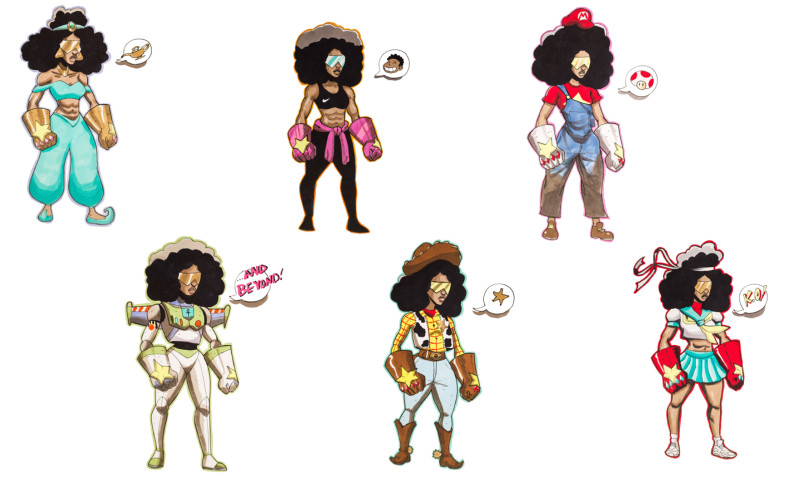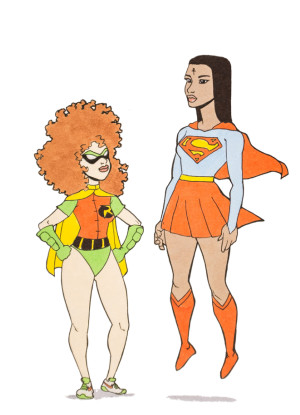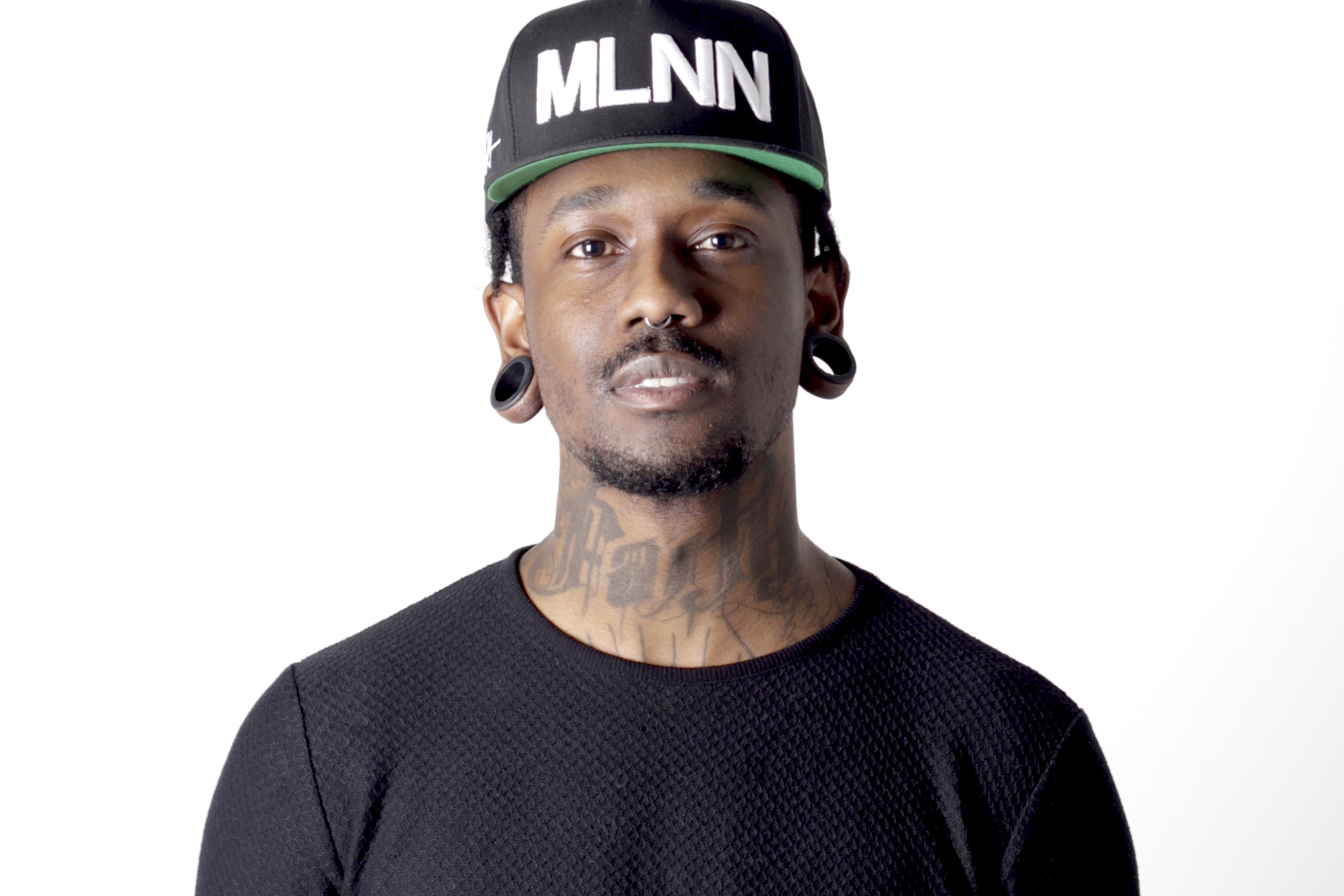BACKSTORY: Markus Prime, an artist known for his unadorned—yet impactful—reimaginings of well-loved cartoon characters as women of color, has just released his first sketchbook, B.R.U.H.: Black Renditions of Universal Heroes
FROM: Born in Warren, Ohio, but left at a young age with his military family; recently settled in LA after living all over the US
YOU MIGHT KNOW HIM FROM: His popular Instagram account or some of his viral images—including one of a modernized Princess Jasmine and Pocahontas smoking together
NOW: Celebrating and promoting the release of B.R.U.H. and working on an animated series

from Markus Prime’s B.R.U.H. / photo courtesy Markus Prime
It wouldn’t be completely correct to say that Markus Prime just got his big break. If you ask any of his 157,000 Instagram followers, who vie for limited prints of his work and send praise as soon as he posts new images, he’s been doing just fine for a while now. If you ask The Huffington Post, who covered his response to the McKinney, Texas, police officer who wrestled fifteen-year-old Dajerria Becton to the ground at a pool party last summer, they’d say the same thing. After that incident—which was filmed, uploaded to YouTube, and viewed more than 12.5 million times—Prime created a disarmingly simple illustration: Becton, a black girl, is depicted in an orange bikini standing atop a white, handcuffed cop who’s lying facedown on the ground. All it does is reverse the roles, but the impact is staggering.
“If black men are struggling to get representation in Hollywood, then black women are struggling twice as much.”
Twenty-nine-year-old Prime, a recent transplant to Los Angeles, understands that it doesn’t take a graphic novel to get a point across. “A lot of people overanalyze a lot of things,” he says. “I wasn’t trying to be a political superhero. I saw it and I felt compelled to do something.” He’s been doing something online in a major way for a few years now, and his loyal following has eagerly anticipated the release of his first book, which came out at the end of March. The intent of this sketchbook—B.R.U.H.: Black Renditions of Universal Heroes—is right there in the title. It isn’t a narrative. It’s simply representation. Role reversal. “I didn’t want to be one of the people who just complained,” he says. “I figured, I have the ability, I have a platform, people look at my work, so why not try to bring awareness to the situation?”

Robin and Supergirl in B.R.U.H. / image courtesy Markus Prime
Further, these aren’t just depictions of familiar characters as people of color. They’re also all women. In the book’s preface, Prime points out something that shouldn’t have to be explained in 2016, but still bears mentioning: the word “hero” is not inherently masculine. “Would you be upset if you were expecting Superman and Superwoman showed up?” he writes. “What if Naruto had Bantu knots and full lips with chestnut brown skin?” Thanks to Prime’s beautifully rendered work, now she does. “Many artists do draw women because obviously women are beautiful, but it became a little bit deeper to me,” he says. “If black men are struggling to get representation in Hollywood, then black women are struggling twice as much.” By way of example, Prime also mentions that the makers of Teenage Mutant Ninja Turtles intended for April O’Neil, the human friend of the Turtles, to be black.
In the weeks leading up to the release of B.R.U.H., Prime’s Instagram posts included book teasers and promotion along with his usual works in progress. Now, though, they share space with photos submitted by his fans, often of kids with their own copies of B.R.U.H.. Because social media has played such a huge role in Prime’s exposure, he’s included some of his tweets in the book, too—ideas like “Representation matters” and “You matter.” Who else reacts to his work? Young black women, college students, older people with families. He has fans in Ireland, the Middle East, and Japan. “Huge variety, as of late,” he says. “A lot of white people are supporting it and sympathetic to it and understand what I’m trying to do.”
Prime talks about other young black artists he admires—people like PaperFrank, Michelle Robinson, and Anthony Piper. “All of them are showing that there’s a versatility to blackness,” he says. “We all can be successful black artists and still have different perspectives. We don’t all have to draw the same thing. It’s really refreshing.” FL









